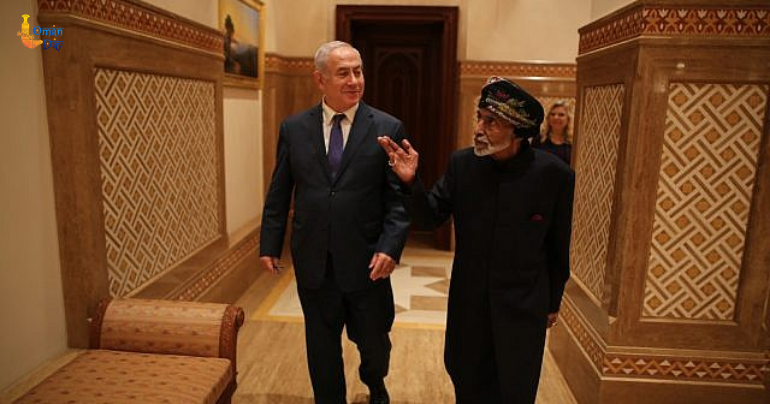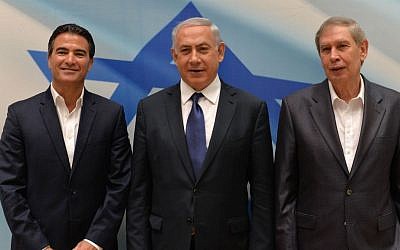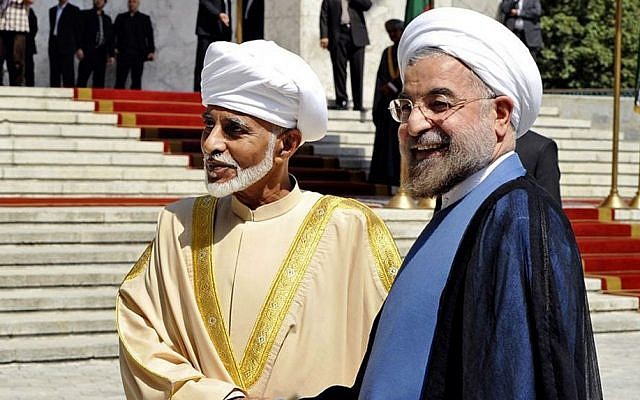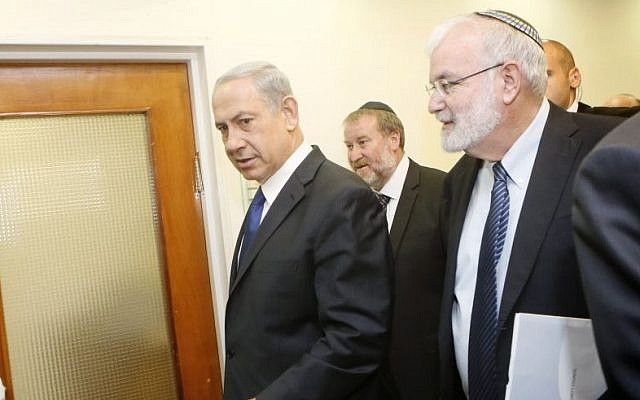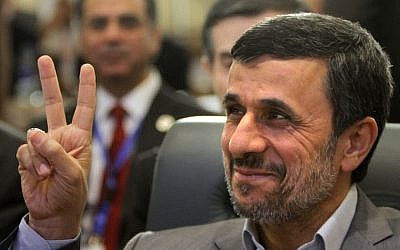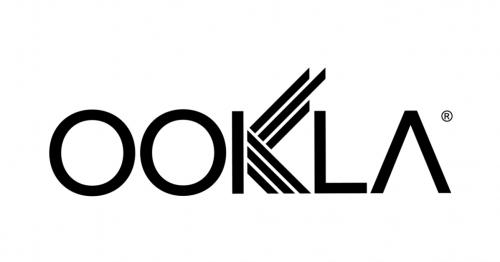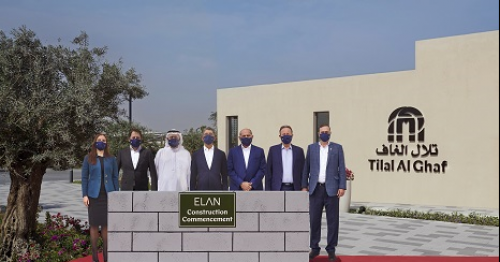TV report: Oman sought to broker Israel-Iran talks in 2013; Netanyahu said no
Oman offered to mediate direct negotiations between Israel and Iran in an initiative that Israel’s Mossad chief thought was worth serious consideration, but Prime Minister Benjamin Netanyahu rejected the idea, Israeli television reported on Sunday night. Israelis familiar with the initiative believe Iran was ready to cooperate, the report said.
Citing four senior Israeli officials who were involved in the issue, Channel 13’s diplomatic correspondent, Barak Ravid, said Oman offered to broker the contacts between the two enemy countries weeks after Hassan Rouhani won elections to succeed Mahmoud Ahmadinejad as Iranian president in early summer 2013.
With the US under president Barack Obama already secretly negotiating with Iran, in an initiative that also began in Oman and that ultimately yielded the controversial 2015 Iran nuclear deal (JCPOA), the leadership of that Gulf state suggested to Israel that its interests would be well-served by having its own dialogue with Tehran, the report said, while warning that the absence of such a dialogue “could lead to war.”
Prime Minister Benjamin Netanyahu (center) with outgoing Mossad director Tamir Pardo (right) and incoming director Yossi Cohen, in Tel Aviv, on January 6, 2016. (Kobi Gideon/GPO)
Then Mossad chief Tamir Pardo thought the idea was “serious and worth considering,” and brought it to Netanyahu’s attention.
The initiative was discussed in a meeting including Netanyahu, Pardo, and Netanyahu’s then national security adviser Yaakov Amidror, the report said. And Netanyahu decided to reject it.
“If that was the response,” said Amidror carefully, “it was justified.”
Iranian President Hasan Rouhani, right, shakes hands with Omani Sultan Qaboos during an official arrival ceremony, in Tehran, Iran, August 25, 2013. (AP/Iranian Presidency Office, Hojjat Sepahvand)
Without explicitly confirming all the details of the report, Amidror told Channel 13 that the US had “tricked” Israel by opening a secret dialogue with Iran, and that he was opposed to an idea that might help legitimize the US-Iran talks.
Furthermore, Amidror said to camera, “As long as the Iranian leadership wants to destroy Israel, there is nothing to talk with it about.”
Prime Minister Benjamin Netanyahu with his former National Security Adviser Ya’akov Amidror and (background) cabinet secretary Avichai Mandelblit at the PMO in Jerusalem on November 3, 2013. (Miriam Alster/FLASH90)
Even if the Mossad thought the Omani initiative was worth pursuing, said Amidror, reiterating that he was not actually confirming the initiative, Israel “was right to respond in the negative.” It would have helped the Americas “who had tricked us,” and helped Iran, “and I didn’t think we should help either.”
At the same time, he noted, it was perfectly legitimate for Oman to seek to show that it was capable of maintaining contacts with both sides of the Israel-Iran conflict.
Oman has long maintained discreet ties with Israel, and built a reputation for creative foreign policy. Oman’s ambassador was one of the three Arab envoys to the US (along with those of the UAE and Bahrain) who attended last Tuesday’s unveiling of the Trump administration peace plan.
Oman’s long time ruler, Sultan Qaboos bin Said, was the first Gulf leader to host a serving Israeli prime minister — Yitzhak Rabin in 1994. Qaboos, who died last month at 79, having ruled since 1970, hosted Netanyahu on a historic visit to the country in 2018. Netanyahu eulogized him as “an incredible leader who worked tirelessly to promote peace and stability in our region.”
Former Iranian president Mahmoud Ahmadinejad in Cairo, Egypt, February 6, 2013 (AP/Amr Nabil)
At the time of the reported initiative, Netanyahu was openly threatening to target Iran’s nuclear infrastructure, and Ahmadinejad had been relentlessly urging Israel’s destruction, the report noted, but Oman believed Rouhani’s election “opened a door” and that the prospects for successful US-Iran negotiations would be boosted if Israel was also in dialogue with Tehran.
But even taking the first steps toward such a dialogue required Netanyahu’s assent, the report said, because he had instructed Israel’s security and intelligence apparatuses not to hold any contact, even indirect, with Tehran since he took office in 2009. This blanket ban, the TV report said, did not apply to interactions with any other country.
The report said “senior Israelis” remain convinced that the Omani initiative was serious “and that the Iranians were prepared to cooperate with it.” The overture, Ravid concluded, underlined Oman’s importance to Israeli security.
He said the Prime Minister’s Office had offered no comment on the report, but had not denied it.
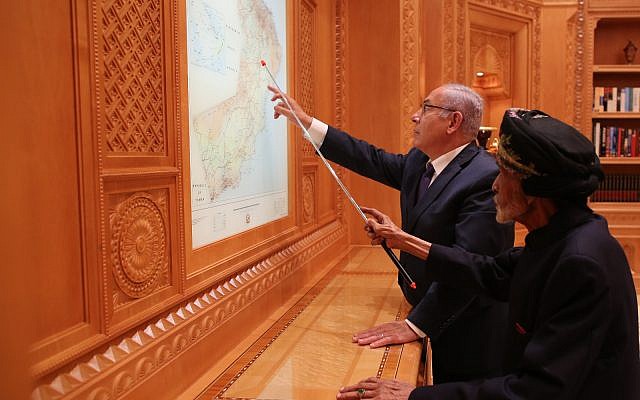
tag: oman , omannews , dailyoman , netanyahu , broker , israel , iran
Share This Post

